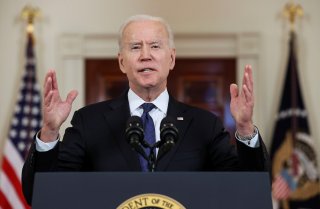Stimulus Check Mystery: Why People In Japan Are Getting Paid
The Asahi Shimbun, one of Japan’s largest newspapers, reported last week that a few older Japanese citizens with previous financial connections to the United States have received U.S. stimulus checks from President Biden’s March 2021 American Rescue Plan in the mail.
The Asahi Shimbun, one of Japan’s largest newspapers, reported last week that a few older Japanese citizens with previous financial connections to the United States have received U.S. stimulus checks from President Biden’s March 2021 American Rescue Plan in the mail.
The newspaper described the experience of a 79-year-old Japanese man, who, apropos of nothing, received a $1400 stimulus payment in April alongside his wife. The man in question had worked for a Japanese company in the United States for five years; during that time, he paid social security taxes, putting him on the IRS’s rolls.
Per a 2005 agreement negotiated between Japan and the United States, Japanese expatriates are eligible for Social Security, while American expatriates working in Japan are entitled to Japanese retirement benefits. For this reason, the man in question had been receiving monthly $500 payments from the Social Security Administration prior to the erroneous stimulus check’s arrival.
A second recipient, a retirement-age office worker in Chofu, Tokyo, also had a connection to the United States. Per the same Asahi Shimbun article, he had worked in New York during the 1980s and had applied for a pension in the United States during the pandemic.
The American Rescue Plan Act states that only U.S. citizens and some permanent residents with Social Security numbers are eligible for the stimulus checks. Therefore, the payments to Japanese citizens – some of whom receive Social Security benefits, but are not citizens or permanent residents – were made erroneously and should not be cashed.
Ultimately, after the Shimbun contacted the IRS, it recommended that erroneous Japanese recipients mail their checks back to the IRS’s regional headquarters in Texas. It appears that they opted not to do so, although the 78-year-old said he would not attempt to cash his, either.
This is not the first time that the IRS has made errors in its attempts to clear stimulus payments quickly. In March 2020, in response to the urgency of the pandemic, the agency pushed millions of $1200 stimulus payments out without scrutinizing their rolls – resulting in millions of checks being sent to the dead, many of which were then cashed by their heirs.
Still, U.S. officials will have reason to question why the March 2021 checks were sent to the Japanese families in error, while the previous two rounds of stimulus checks – passed with greater urgency, and therefore with more room for error – did not.
Trevor Filseth is a news reporter and writer for the National Interest.

